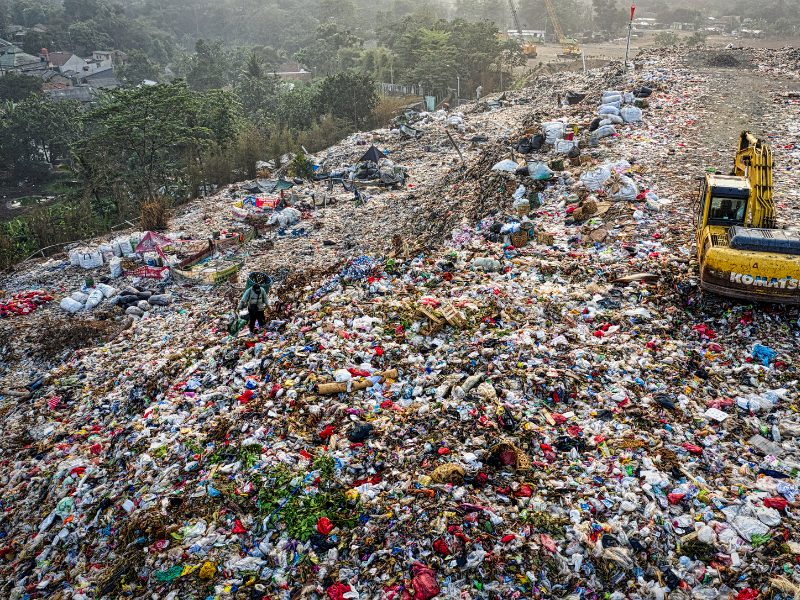The high speed urbanization leads to high amount of waste generation on this planet. India alone generates around 62 million tones of waste every year. Out of which only 43 million tones are collected of which about 12 million tones are treated and 31 million tones are sent to landfill sites. This is not at all cool right?
It is high time we realize that we are running out of land for landfills. Following are the problems landfills create,
1. Landfills contaminates soil and water.
2. Landfills affect human health by creating pollution.
3. Landfills light up methane and carbon dioxide easily.
4. Due to smell and infertile land, humans cannot live around landfills.
What is the solution to reduce the waste dumped into landfills?
1. Waste segregation
2. Responsible waste disposal
Waste Segregation
The essence of waste segregation is sorting the waste according to waste types like wet and dry. When these two types of waste are mixed, it becomes difficult to segregate, the percentage of recycling also reduces. A lot of raw materials has to be produced to make new products and this leads to waste of energy and unnecessary pollution in the environment.
As a responsible citizen you can win half the battle by following basic waste separating methods. When you separate wet and dry waste, all the wet waste is composted and dry waste is treated by Solid Waste Management authorities and further segregated into recyclable and reject waste.
Understand your waste
Bio-degradable wet waste
1. Fruits and vegetables
2. Flowers
3. Leaves
4. Wood shavings or powder
5. Food waste
There are many methods to compost your wet waste. One can easily follow these methods and divert 30% of wet waste that ends up in landfills. When organic waste is dumped into landfills and during their decomposing process they create dangerous gases like methane and carbon dioxide. These gases have a warming power that lasts for 20 years once produced. a major trigger for the global warming. Around 6%-8% of human caused greenhouse gas can be avoided when organic waste is diverted.
Non bio-degradable dry waste
1. Plastics
2. Paper
3. Glass
4. Metal
5. Tetra packs
6. Aluminum foil
Dry waste can be separated according to paper, metal, glass & e-waste and sold to scrape collectors for smaller prices. These scrap collectors supply this waste to factories and manufactured where they use it as raw materials. Natural resources like wood, water and energy can be conserved.
In most of the places we can go with biodegradable single use products. Biodegradable plates, cups, glasses are available that are manufactured with the biomass that is naturally produced. Anyways these products are supposed to be segregated and composted separately. Hence, reusable products are the best alternative solution. Cutlery banks like Adamya Chethana allows you to rent plates/cups/glasses/spoons for an event. This way, a lot of single use cutleries can be avoided.
There is one more type of waste we have to be aware about, it is called as reject waste. This reject waste goes directly to the landfills. Because they can be neither composted nor recycled. Waste like diapers, sanitary napkins, tampons and more. They can live for 300 years in the landfill by creating so much pollution to the environment. Again, as a responsible citizen please try to use an alternatives to these products like cloth diapers/pads, bio-degradable diapers/pads, menstrual cup etc.
There are many eco-warriors who help to understand waste management, composting like
1. SWMRT Community - an active community SWM practitioners working for adoption of sustainable waste management practices by citizens
2. Dailydump Compost - let's you to choose different types of composting methods that can be followed even a compact flat/room.
3. Trust Baket - has composting materials and tutors to help you compost at home easily
4. Recharka Org - recycles plastic into fashion elements like bags, wallets, purses and more.
5. Be-responsible - collects e-waste and recycles them to the best
6. Hasirudala - manages and tracks the waste generated at a gathering/event. A report of how waste is managed will also be provided.
7. THE BAG - let's you choose simple sustainable alternatives to replace plastic one's.
A little effort is all that is needed to manage the waste we generate. It is simple and helps the environment by slowing down the global warming. Let us be those responsible adults in order to pass on a greener, healthier environment to our future adults.

